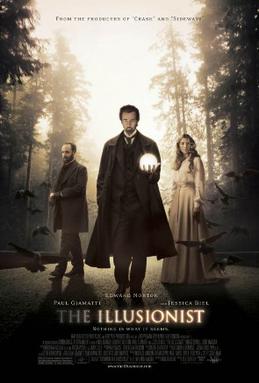I just read the summary on imdb and a comment and I think it is the most spoiler-tastic thing I have ever seen there. Of course I don't remember the thing very accurately, maybe that's why my memories of it are so fond.
The story is a romance pure and simple. Boy meets girl, they fall for each other and have some romantic moments together. The remarkable thing about it is that it puts a pin on it: everything has happened before and when their relationship failed they erased each other from their memories. Wow, an interesting idea in a romance who would have thought?
And then, a couple of years later for me, comes the mind-blowing part: this movie is not SF. At least not in its entirety. Specific memories can be erased... Come again?
Due to the subjective nature of memories (I'm sure this hasn't gone by unnoticed, memories tend to be slightly different depending on your frame of mind, on new connections you are now able to make etc) we may have thought they are something inexplainable happening at a higher level due to the interaction of neurons in the brain. At least those were my thoughts... thinking that you just store information and then retrieve it just seems plain wrong, and it is. Though it does have a grain of truth in it in the sense that memories are physical things and not some intellectual abstractions.
This was found out by giving a drug to mice and realizing that they are unable to form new memories. While the drug is in their system, they are physically unable to form memories. Turns out the drug was inhibiting synthesis of proteins, meaning memories are some proteins or their constituents: amino acids (you know that word they abuse in shampoo commercials). Ok, now get ready for the mind-blowing part: when injected with this drug during the act of remembering something, the initial memory disappears as well.
What does this mean? It means that when we remember something we are actually creating the memory anew. It is more of a creative than a retrieval process. It seems to involve three steps, at least this is how I understand it: Find the physical memory, that protein somewhere in your brain, interpret it by reading and triggering a series of electric impulses which form your thoughts on the matter and the actual memory you experience and as you are going write it back in the form of a protein. As the last step is inhibited by the drug the whole memory will be lost afterwards. The changes in memory seem to be on a physical level due to a rearrangement of the connections between neurons, but on a more practical level we can very easily be influenced. For example by someone sharing an experience with us and having very strong views about what they saw. That confidence seems to shake our own and in the process of remembering alter the initial memory so that we think we saw stuff we did not see.
What it also means is that "Eternal sunshine of the spotless mind" may not be just cool but a glimpse into the future. Although people do seem to use these discoveries in more useful things like curing people of severe traumas instead of love sickness. But, as seen in my previous post that can lead to severe trauma. At least in Japanese minds. My conclusion on the matter is that I have to see Charlie Kaufman's other stories too, I already love this and Adaptation. Especially Adaptation :)
Reminded of my favorite music album: The Human Equation, by Ayreon. Got me thinking about lyrics from Day Fifteen: Betrayal.
Reason: This memory burns inside
You can't forget, you cannot fight or erase it.
You'll have to tell and set it right
You cannot run, you cannot hide, so face it!
You can't forget, you cannot fight or erase it.
You'll have to tell and set it right
You cannot run, you cannot hide, so face it!
PS. Actually, what I did in this post is hardly more than to sum up a show I heard on Radiolab. They have a lot of cool anecdotes which make these things more interesting and more understandable. I tried to be as short as possible, but give it a listen. It will be worth it.
I think this is the beginning of a section: "What I learned today".






